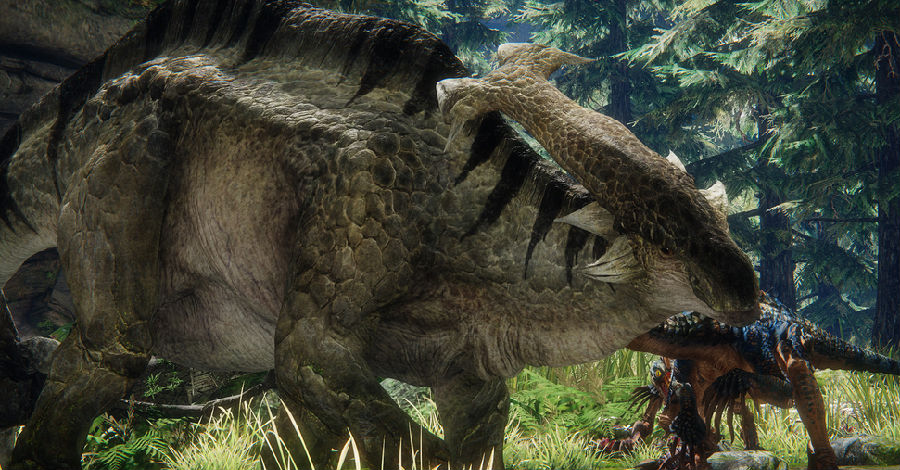Like all raptors, Utahraptor was one of the top predators of its time.
和所有迅猛龙一样,犹他盗龙是当时的顶级掠食者之一。
But unlike its cousins, this raptor was not built for speed.
不过跟它的亲戚们不同,这种迅猛龙的构造不是为了速度。
His short but robust legs made him a heavyweight.

Because of Utahraptors's large size and proportion of the leg bones, it's pretty safe to assume that it was slower than what we think of as Velociraptor and Deinonychus.
因为犹他盗龙较大的体型以及腿骨所占的比例,可以比较确定地推测它的速度比伶盗龙和恐爪龙要慢一些。
Utahraptor may have been more of an ambush predator.
犹他盗龙可能更像是伏击性掠食者。
In other words, we might say that a Velociraptor was a cheetah running things down, that Utahraptor may have been the equivalent of a lion in the sense that it may have laid and waited for prey.
换一句话说的话,我们可能会说伶盗龙像猎豹一样奔袭猎物,而犹他盗龙可能更像狮子同样会躺下等待猎物。
Utahraptor would normally have preyed on less well armored herbivores, ones less likely to cause injury, but the fact that the skeleton of Gastonia was found nearby proves that they did share the same terrain.
犹他盗龙通常会攻击没那么多护甲的植食动物,那些不那么容易带来伤害的,但是在它附近发现的加斯顿龙骨架证明它们分享同一地域。
The area where they found the skeleton of Utahraptor and Gastonia looks a lot different today than it did when they were alive.
人们发现犹他盗龙和加斯顿龙骨架的地区如今和它们当年生活的时候已经大不相同。
Although there were large conifer trees, this particular part of the state was a bit more open and dry.
虽然那时有很多巨大的针叶树,该州的这个特别部分更开阔而且干燥一些。
It sort of resembled a savanna but without grass.
这就像是一个没有草的大草原。
Utahraptor hunted this area because it allowed him to see prey over greater distances.
犹他盗龙在这里狩猎是因为它能在远处就看到猎物。
Gastonia was attracted to the area because of the amount of low growing vegetation, something you don't find in the big dense forest.
加斯顿龙被吸引来的原因则是这里有很多生长得很低的植物,这在又大又密的森林里可找不到。
Scientists believe that for most of the year, life flourished on the ancient Savanna.
科学家们相信在一年中的大部分时间里,这片古老的草原里欣欣向荣。
But during the dry season, the environment could be harsh.
但是在旱季里,环境可能会变得很严酷。
We have a number of fossil soils preserved that suggest there were periods of extreme aridity, perhaps extensive drought.
我们有一些保存下来的土壤化石,表明这里有些时候极度干燥,可能彻底干旱。
In fact, some of these extensive drought intervals might be responsible for some of the fossil sites that we found.
其实,这些彻底干旱时期可能就是我们发现的一些化石场的成因。
Drought conditions meant that herbivores would have less to eat.
干旱条件意味着植食动物食物变少。
The weaker ones would either migrate or die.
变弱的动物要么迁徙要么死亡。
This probably forced the predators to attack whatever they could find, no matter how well defended.
这很可能迫使掠食者攻击任何找得到的猎物,不管它们防护得有多好。



